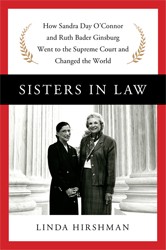By
– September 1, 2011
Hurray for scholarly Jewish women’s conferences! It was just such a conference that responded to some troubling aspects of the findings that Betty Friedan presented in her 1963 groundbreaking book, The Feminine Mystique. Did Jewish women feel “imprisoned” and depressed in suburbia because they were overly tied to hearth and home as reported by Friedan, herself a Jewish woman? Were there Jewish women who were “movers and shakers” in postwar America? To arrive at some answers to those questions, plus more, a three day conference was held in 2005 at New York University. The conference explored the “diversity of Jewish women’s experiences in the immediate postwar decades.” Out of that grew a fascinating anthology, A Jewish Feminine Mystique? Jewish Women in Postwar America edited by Hasia R. Diner, Shira Kohn, and Rachel Kranson.
Each article presents a highly readable socio-cultural historical analysis of far-ranging topics, all of which are connected by the thread that Jewish women were involved in making important contributions in a wide variety of areas of postwar America. These activities include political activity in Miami, organizing the National Council of Jewish Women, Hadassah, Grossinger’s hotel complex, starring in movies, leading social welfare agencies, and being engaged in political and scholarly work. The articles also describe how Jewish women faced such issues as being refugees and starting life anew after the Holocaust, fleeing persecution in Arab countries at the birth of Israel in 1948, the Hungarian revolution in 1956, and Castro in Cuba.
For readers (like me) who relish the joy of reading Jewish and American history, this book will be a delight. Biographies of contributors. Endnotes, index, photographs.
Each article presents a highly readable socio-cultural historical analysis of far-ranging topics, all of which are connected by the thread that Jewish women were involved in making important contributions in a wide variety of areas of postwar America. These activities include political activity in Miami, organizing the National Council of Jewish Women, Hadassah, Grossinger’s hotel complex, starring in movies, leading social welfare agencies, and being engaged in political and scholarly work. The articles also describe how Jewish women faced such issues as being refugees and starting life anew after the Holocaust, fleeing persecution in Arab countries at the birth of Israel in 1948, the Hungarian revolution in 1956, and Castro in Cuba.
For readers (like me) who relish the joy of reading Jewish and American history, this book will be a delight. Biographies of contributors. Endnotes, index, photographs.
Carol Poll, Ph.D., is the retired Chair of the Social Sciences Department and Professor of Sociology at the Fashion Institute of Technology of the State University of New York. Her areas of interest include the sociology of race and ethnic relations, the sociology of marriage, family and gender roles and the sociology of Jews.




